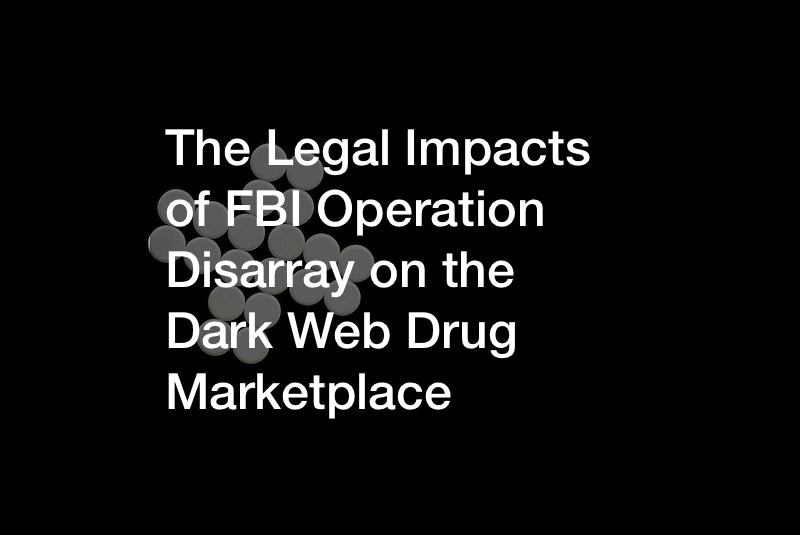Overview of Dark Web Drug Marketplaces
The dark web has become an underground hub where various illegal activities thrive, with drug trafficking being among the most prominent. Within this concealed part of the internet, specialized marketplaces facilitate the anonymous buying and selling of illicit substances. These dark web drug marketplaces operate using encryption and privacy tools, making it challenging for authorities to monitor and shut down these operations. Buyers and sellers often rely on cryptocurrencies to conduct transactions securely. As these markets evolve, they present significant challenges for law enforcement agencies and raise concerns about public health and safety. Navigating the complexities of the dark web drug marketplace requires understanding its structure and the means by which illicit transactions are concealed, making it a critical area for ongoing research and intervention.
Definition and Functionality
The dark web drug marketplace refers to the anonymous online platforms where illicit substances are bought and sold beyond the reach of conventional law enforcement and regulatory scrutiny. These marketplaces operate on the dark web, a part of the internet accessible only through specialized software such as Tor, which ensures user privacy and anonymity. This environment facilitates the exchange of illegal drugs, often ranging from common recreational substances to more dangerous and exotic items.
These marketplaces function much like legitimate e-commerce websites, featuring search functionalities, product listings, seller ratings, and secure payment systems, typically utilizing cryptocurrencies to maintain transaction anonymity. Buyers and sellers can communicate discreetly through encrypted messaging within the platform, ensuring privacy and preventing traceability. The setup of a dark web drug marketplace includes moderation, dispute resolution, and escrow services to foster trust among users despite the illegal nature of transactions.
The popularity of these marketplaces has grown due to the increased availability of encrypted tools and the desire for anonymity in illegal drug trade. They serve as a hub for illicit activities, allowing individuals to access a wide variety of drugs without direct contact with sellers, thus reducing the risk of detection. However, law enforcement agencies around the world continuously work to shut down these platforms and apprehend those involved, highlighting the ongoing tension between underground marketplaces and regulatory authorities.
Role of Anonymizing Software and Onion Sites
The dark web has become a hidden marketplace for various illicit activities, with drug transactions being one of the most prevalent. Dark web drug marketplaces operate on specialized platforms that provide anonymity and security for both buyers and sellers. These marketplaces often utilize the layered structure of the dark web to evade law enforcement and traditional monitoring methods. Understanding how these platforms function is crucial in grasping the scope of illegal drug distribution online.
One significant feature of the dark web drug marketplace is the reliance on anonymizing software, which enables users to access these sites securely and privately. The most common tools include Tor (The Onion Router) and other privacy-centric networks, which mask IP addresses and encrypt traffic. This level of anonymity makes it difficult for authorities to trace transactions and identify participants, thereby facilitating widespread illegal trade.
Central to the dark web’s structure are onion sites, which are specialized websites accessible only through anonymizing networks. These sites employ the .onion domain extension and are designed to hide their physical location and server details. Onion sites are essential for maintaining the decentralized and anonymous nature of dark web marketplaces, allowing users to browse and conduct transactions without fear of detection.
Key aspects of dark web drug marketplaces include:
- Secure transaction systems that often rely on cryptocurrencies such as Bitcoin to maintain financial anonymity.
- Robust review and feedback mechanisms that help establish trust among users.
- Escrow services to hold funds until the buyer confirms the receipt of their order, reducing the risk of fraud.
- Use of encrypted messaging and communication channels for discreet negotiations.
Role of Anonymizing Software and Onion Sites
- They provide the necessary infrastructure for accessing hidden services and marketplaces securely.
- They anonymize user identities, protecting against tracking and surveillance efforts.
- They help maintain the operational continuity of dark web drug markets despite law enforcement crackdowns.
Overall, the dark web drug marketplace exemplifies how technology designed for privacy and anonymity has been exploited for illegal purposes. Understanding these mechanisms is key to developing effective strategies to combat illicit activities online while respecting digital rights and privacy concerns.
Types of Illicit Goods Sold
The dark web has emerged as a hidden part of the internet where illegal activities, including drug sales, are often conducted through specialized marketplaces. These platforms operate anonymously, making it difficult for authorities to track transactions and identify perpetrators. The dark web drug marketplace serves as a hub for various illicit goods, with drugs being the most prominent category. Buyers and sellers use encrypted communication channels and cryptocurrencies to facilitate transactions, ensuring privacy and security for all parties involved.
Within these marketplaces, a wide array of illicit goods are available, with a significant focus on various types of drugs. Commonly sold substances include synthetic drugs, such as methamphetamine and MDMA, as well as traditional narcotics like heroin, cocaine, and cannabis. These platforms also often feature novel psychoactive substances that are designed to mimic the effects of known drugs but may carry unpredictable health risks. The availability of such drugs online has contributed to increased accessibility, potentially fueling substance abuse and related health crises globally.
The dark web drug marketplace operates in a clandestine manner, often utilizing stealth techniques to evade law enforcement efforts. Despite efforts to combat illegal online sales, these marketplaces continue to evolve with new security measures and changing technology. The illicit trade on the dark web not only involves the sale of drugs but also includes the distribution of other illegal goods, such as counterfeit currencies and weapons, further complicating efforts to curb these activities. Understanding the scope and operations of these marketplaces is crucial for developing effective strategies to combat illegal online activities and protect public health and safety.
Popular Dark Web Drug Markets
The dark web has become a notorious hub for illegal activities, with drug markets operating in hidden corners of the internet. Among these, dark web drug marketplaces have gained significant attention due to their clandestine nature and the variety of illicit substances they offer. These marketplaces enable users to purchase drugs anonymously, often utilizing cryptocurrencies to facilitate transactions, which complicates law enforcement efforts. Understanding the structure and key players of these marketplaces is essential for comprehending the broader impact on public health and safety. For more information on the operations and challenges of these marketplaces, explore resources relating to the dark web drug marketplace.
Notable Marketplaces and Their Histories
The dark web has become a well-known platform for the illicit exchange of drugs through specialized online marketplaces. These marketplaces operate within the hidden layers of the internet, often accessed via anonymizing networks, making them difficult for authorities to regulate. Over the years, several popular dark web drug markets have gained notoriety for their size, variety of offerings, and impact on global drug trafficking.
One of the earliest and most notable dark web drug marketplaces was Silk Road, launched in 2011. It revolutionized online drug transactions by providing a marketplace that used Bitcoin for transactions, ensuring privacy and security for buyers and sellers. Despite being shut down by law enforcement in 2013, Silk Road’s success inspired numerous other similar platforms. The site’s legacy persisted in subsequent marketplaces, many of which mimicked its structure and features.
Following Silk Road, markets such as AlphaBay and Hansa emerged as prominent players, offering extensive drug catalogs alongside other illegal goods. AlphaBay became one of the largest dark web marketplaces before its seizure in 2017, attracting a massive user base due to its user-friendly interface and comprehensive product listings. Hansa, which was taken down by authorities later, was notable for its significant law enforcement infiltration, providing valuable insights into the operations of such markets.
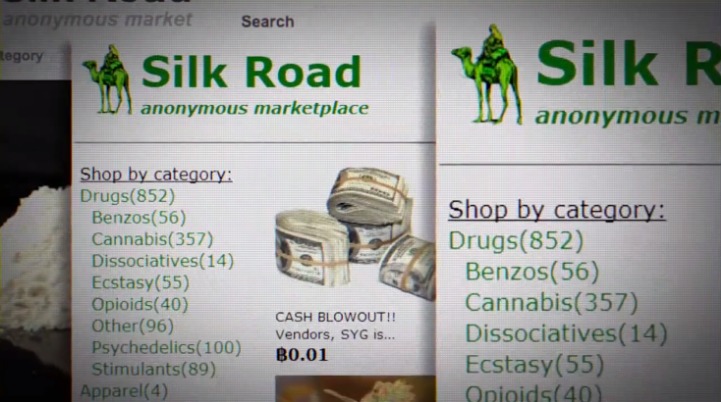
More recently, newer marketplaces like Dream Market and Wall Street Market gained prominence before eventually shutting down or being targeted by law enforcement. These platforms have often operated with enhanced security measures, including escrow systems and reputation scores, to gain trust among users. The evolution of these marketplaces reflects their adaptability in the face of law enforcement efforts, often shifting domains or employing robust anonymization techniques.
While these dark web drug markets have facilitated the illicit trade of substances globally, they also demonstrate the challenges faced by authorities in combating online drug trafficking. Despite their secretive nature, many of these marketplaces have histories characterized by innovation, resilience, and eventually, law enforcement intervention. Understanding their development provides insight into the ongoing efforts to curb illegal activities on the dark web and highlights the importance of continued vigilance and technological advances in this fight.
Features and User Experience
Dark web drug markets have emerged as clandestine online platforms where users can buy and sell illegal substances with a level of anonymity that is difficult to attain through traditional means. These marketplaces operate on encrypted networks, often using Tor or similar anonymity-preserving technologies to conceal users’ identities and locations. This environment has facilitated a surge in the availability of various drugs, ranging from recreational substances to prescription medications, making it a significant concern for law enforcement and public health officials.
Popular dark web drug markets are characterized by their extensive product listings, user-friendly interfaces, and secure transaction methods. Features such as escrow services, encrypted messaging, and review systems help build trust among users in an otherwise risky environment. These markets typically employ a decentralized model, with multiple vendors offering different products, thereby increasing variety and competition. Market moderators often implement stringent guidelines to prevent scams and ensure smoother user experiences, although risks remain high for both buyers and sellers.
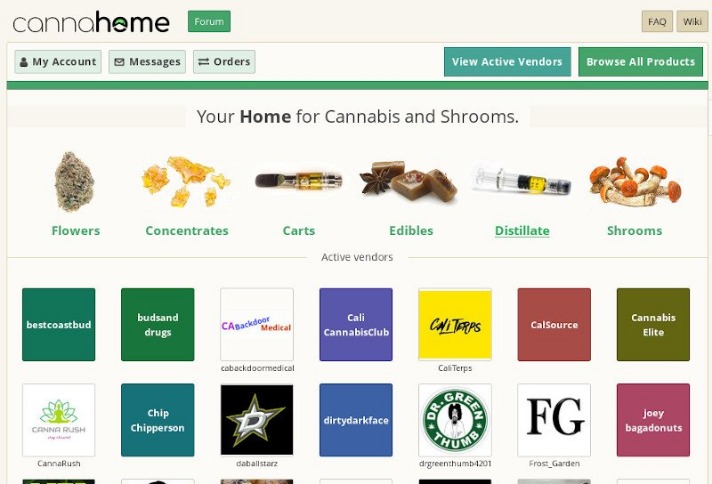
When it comes to user experience, these platforms aim to provide a seamless and discreet shopping environment. Navigation is usually simplified, with categories arranged logically and search functions available for quick access to desired products. Payment options commonly include cryptocurrencies, most notably Bitcoin, which allow for anonymized transactions. Many markets also feature ratings and feedback mechanisms that help assess vendor reliability, contributing to a form of reputation system that influences purchasing decisions. Despite efforts to improve usability, the inherent dangers of dealing within the dark web, including scams, arrests, and exposure to harmful substances, continue to pose significant concerns.
Vendor and Buyer Interaction Dynamics
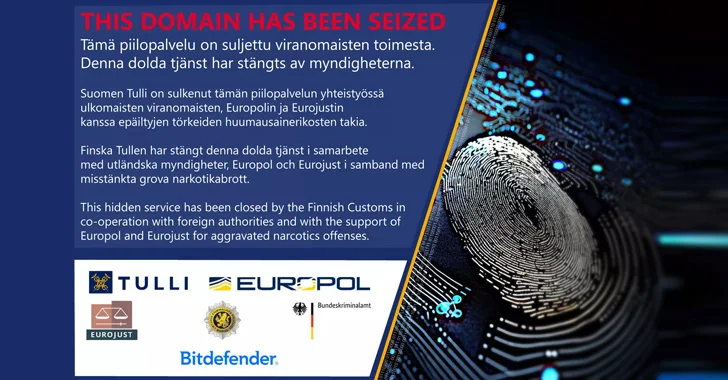
The dark web has become a notorious platform for illegal drug transactions, with specialized marketplaces serving as hubs for vendors and buyers to connect anonymously. These platforms operate on encrypted networks, allowing users to buy and sell illicit substances with a degree of privacy that traditional markets cannot offer. The dynamics within these marketplaces are complex, involving careful vetting of vendors, reputation systems, and discreet communication channels to facilitate transactions.
In the dark web drug marketplace, vendor-buyer interactions are often characterized by a high level of anonymity and security. Vendors typically establish detailed profiles showcasing their product range, previous transaction ratings, and feedback from past buyers. This transparency helps build trust among buyers who rely heavily on reviews when selecting a vendor. Buyers, in turn, communicate via encrypted messaging systems to negotiate prices, discuss product specifics, and arrange delivery methods.
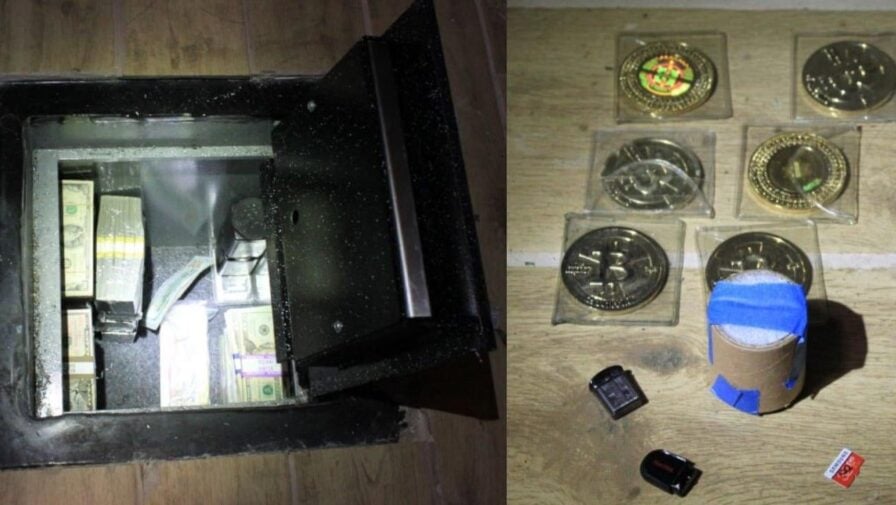
Transaction processes on these marketplaces tend to incorporate escrow services, ensuring that funds are only released once the buyer confirms receipt and satisfaction with the product. This system reduces the risk of scams and enhances the reliability of the marketplace. Payment methods commonly involve cryptocurrencies, which provide further anonymity for both parties. The interaction dynamics are driven by a combination of mutual trust built through reputation systems and technological safeguards that protect user identities.
Overall, the operation of these dark web drug markets hinges on discreet, secure, and trust-based interactions. While they fulfill the demand for illegal substances, they also illustrate the challenges law enforcement faces in monitoring and dismantling such hidden networks. Understanding these online interaction patterns is crucial for developing strategies to combat illegal drug distribution on the dark web.
Operations and Transaction Methods
Operations and transaction methods are essential components of any marketplace, including the clandestine environment of the dark web drug marketplace. These methods enable buyers and sellers to conduct transactions securely and anonymously, often utilizing various technological tools to preserve privacy and evade detection. Understanding how transactions are conducted in these settings provides insight into the complex and often covert nature of illegal online activities. Dark web marketplaces employ specialized procedures to facilitate payments, often relying on cryptocurrencies such as Bitcoin to maintain anonymity. Additionally, some marketplaces implement escrow services that hold funds until the buyer confirms satisfactory receipt of goods, adding a layer of security to transactions.
In the dark web drug marketplace, operational security is paramount, and transaction methods are designed to minimize risks for participants. Buyers typically access these markets through secure, anonymized browsing networks and use encrypted communication channels. Many marketplaces support the use of encrypted messaging and mirror sites to ensure safe navigation. These practices are vital for protecting identities and location data during transactions. Some vendors also accept alternative payment methods, such as gift cards or privacy-focused cryptocurrencies, to further obscure financial trails. For those interested in exploring this underground economy, additional resources on dark web drug marketplaces can be found at various online platforms dedicated to understanding these covert digital environments.
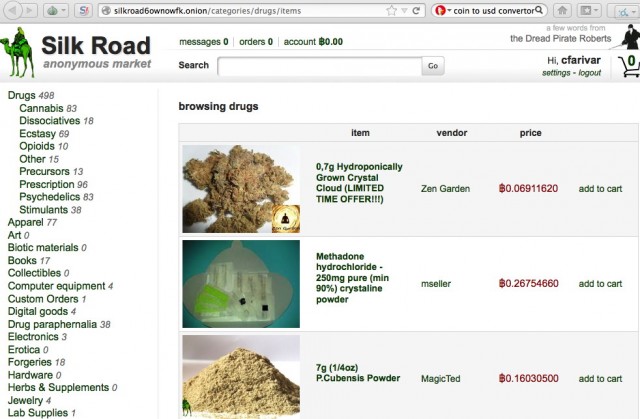
Use of Cryptocurrency in Payments

The dark web drug marketplace has become a prominent platform for illegal transaction activities, emphasizing the importance of understanding various operations and transaction methods involved. These marketplaces often rely heavily on digital currencies to facilitate anonymous and secure exchanges, with cryptocurrency being the preferred method due to its decentralized nature. This allows users to buy and sell illicit substances with a reduced risk of detection by law enforcement agencies.
One of the key transaction methods on these platforms is the use of cryptocurrencies such as Bitcoin, Monero, and other private digital coins. Their blockchain technology enables transparent, yet secure, record-keeping, helping to verify transactions without revealing user identities. This level of anonymity is vital in the context of a dark web drug marketplace, where participants seek to avoid legal complications and ensure privacy.
In addition to cryptocurrency, some marketplaces have adopted escrow services, which hold funds until the buyer confirms satisfactory delivery of the product. This method builds trust between anonymous parties and mitigates fraud. Payment methods are often conducted through encrypted communication channels, further enhancing security. Despite these measures, law enforcement agencies continue to develop techniques for tracking transactions and identifying users involved in illegal activities.
Overall, the operations within a dark web drug marketplace rely heavily on sophisticated transaction methods that prioritize anonymity and security. Cryptocurrency use and escrow services play a crucial role in enabling these illicit exchanges while maintaining the privacy of both buyers and sellers. As technology advances, so do the techniques employed by both criminals and those fighting against them to regulate and monitor illegal drug transactions on the dark web.
Transaction Privacy and Security Measures
Operating within the dark web drug marketplace requires careful adherence to specific transaction methods and stringent privacy and security measures. Given the anonymous nature of these transactions, users must prioritize safeguarding their identities and financial information to avoid legal repercussions and security breaches.
Transaction methods in dark web drug marketplaces often involve cryptocurrencies, especially privacy-centric options such as Bitcoin, Monero, and other digital currencies. Monero, in particular, is favored due to its enhanced privacy features, which help conceal transaction details and user identities. Buyers and sellers typically use encrypted communication channels and secure wallets to facilitate exchanges seamlessly while maintaining anonymity.
To ensure privacy and security during transactions, several measures are commonly employed:
- Utilizing virtual private networks (VPNs) and the Tor network to mask IP addresses and browsing activity.
- Implementing multi-layered encryption for communications and wallet transactions.
- Using fresh, disposable email addresses and aliases when registering on marketplaces.
- Adopting escrow services provided by the marketplace platform to protect both buyers and sellers.
- Conducting transactions with decentralized cryptocurrencies that offer enhanced anonymity features.
- Regularly updating security software and avoiding sharing personal information outside secure channels.
In the context of the dark web drug marketplace, these transaction and security practices are vital for maintaining operational integrity and avoiding law enforcement detection. Anonymity is a cornerstone of these activities, and employing robust privacy measures helps sustain a secure trading environment. Overall, understanding and implementing effective transaction methods and security protocols are crucial for anyone involved in this clandestine market.
Rating, Feedback, and Reputation Systems
Operations and transaction methods, rating systems, feedback mechanisms, and reputation systems play a crucial role in maintaining trust and functionality within dark web drug marketplaces. These elements help users evaluate the reliability of vendors, ensure secure transactions, and promote accountability despite the illicit nature of these platforms. Understanding how these components operate is essential for grasping the dynamics of dark web marketplaces and their impact on online illicit activities.
Transaction methods in dark web drug marketplaces typically involve the use of cryptocurrencies such as Bitcoin or Monero. These digital currencies provide a certain level of anonymity and facilitate borderless transactions, which are vital given the clandestine environment. Vendors and buyers often communicate through encrypted messaging and utilize escrow services to hold funds until product delivery is verified, reducing the risk of scams or non-delivery.
Rating and feedback systems are integral to establishing trust within these marketplaces. Buyers can leave reviews and rate vendors based on their experience with product quality, delivery timeliness, and overall service. Positive feedback enhances a vendor’s reputation, encouraging continued business, whereas negative reviews can deter future customers. Dissatisfied users might also report issues or flag vendors, contributing to marketplace moderation and safety measures.
Reputation systems in dark web drug marketplaces aggregate user feedback and ratings to create vendor profiles that reflect reliability over time. These profiles serve as a form of social proof, guiding prospective buyers towards trusted vendors and helping to minimize fraudulent transactions. The reputation scores are often updated dynamically based on recent transactions, fostering a competitive environment where vendors are incentivized to maintain high standards.
- Use of cryptocurrencies for secure and anonymous transactions.
- Escrow services to protect buyers and sellers during the transaction process.
- Rating systems allowing buyers to evaluate vendors based on product quality and service.
- Feedback mechanisms for reporting issues and building vendor reputations.
- Reputation profiles that influence vendor trustworthiness within dark web drug marketplaces.
Effective operations and transaction systems, combined with robust feedback and reputation mechanisms, are fundamental to the functioning of dark web drug marketplaces. These systems foster a semblance of trust and accountability in an otherwise highly illicit environment, enabling ongoing transactions despite the risks involved.
Law Enforcement Efforts and Crackdowns
Law enforcement agencies around the world are increasingly intensifying their efforts to combat illegal activities on the dark web, particularly targeting drug marketplaces that facilitate the anonymous exchange of illicit substances. These crackdowns involve sophisticated cyberpatrols, undercover operations, and international cooperation aimed at disrupting the infrastructure of these covert markets. The ongoing efforts highlight the challenges faced by authorities in policing a virtual environment that thrives on encryption and anonymity. As a result, the dark web drug marketplace remains a persistent concern, demanding innovative strategies and collaboration to mitigate its impact on public health and safety.
High-Profile Investigations and Seizures
Law enforcement agencies around the world have intensified their efforts to combat illegal activities on the dark web, particularly targeting drug marketplaces that facilitate the trade of controlled substances. These operations often involve extensive investigations, advanced technological tools, and coordinated efforts across multiple jurisdictions to successfully dismantle illicit networks operating within hidden online environments.
Crackdowns on dark web drug marketplaces have resulted in numerous high-profile investigations and seizures of illegal goods and assets. Authorities utilize a range of techniques including digital forensics, undercover operations, and international cooperation to identify key administrators, vendors, and buyers engaged in illegal drug transactions. These operations often lead to the takedown of popular platforms and the arrest of individuals involved in the distribution and trafficking of narcotics.
Significant seizures have included large quantities of illicit drugs, financial assets, and cryptocurrency holdings linked to these dark web marketplaces. By disrupting these illegal supply chains, law enforcement aims to reduce the availability of dangerous substances and dismantle the financial infrastructure that supports such activities. The ongoing efforts highlight the importance of technological innovation and collaboration in tackling the complex challenges posed by dark web drug marketplaces.
- Operation coordination between national and international agencies to carry out large-scale investigations.
- Use of advanced cybersecurity tools to track cryptocurrency transactions associated with illegal trade.
- Conducting undercover operations to infiltrate and gather intelligence on illicit vendors and buyers.
- Seizing dark web marketplaces and shutting down illegal platforms to limit access and disrupt trading activities.
- Prosecution of individuals involved, leading to arrests and legal actions to deter future illicit activities.
Methods for Tracking and Identifying Market Operators
Law enforcement agencies around the world are employing a variety of sophisticated strategies to combat illegal activities on the dark web, particularly targeting drug marketplaces. These efforts focus on cracking down on illicit vendors and disrupting networks that facilitate the anonymous sale and distribution of controlled substances. By leveraging advanced technological tools and collaborative intelligence-sharing, authorities aim to identify and dismantle these clandestine operations effectively.
One key method for tracking and identifying market operators involves the use of covert investigations combined with digital forensics. Law enforcement often employs undercover agents to infiltrate dark web forums and marketplaces, gathering evidence of illegal transactions. Additionally, cyber analysts monitor marketplace activities, analyzing transaction patterns, vendor communications, and escrow addresses to trace illicit flows.
Another critical approach includes the deployment of sophisticated software tools that analyze blockchain transactions, which are often linked to cryptocurrencies used in dark web markets. These tools can trace the flow of funds back to specific entities, revealing anchors that help authorities identify operators behind these platforms. Techniques such as network analysis and clustering help in recognizing recurring patterns and connections among vendors.
- Surveillance and Monitoring of Dark Web Forums and Marketplaces
- Digital Forensics and Data Analysis to Trace Transactions
- Undercover Operations and Human Intelligence (HUMINT)
- Collaboration with Financial Institutions for Suspicious Transaction Reporting
- Use of Automated Algorithms to Detect Anomalous Activities
By systematically applying these methods, law enforcement agencies strive to dismantle **dark web drug marketplaces** and bring illicit vendors to justice. Continuous technological advancements and international cooperation are crucial in adapting to the evolving tactics of underground operators. These concerted efforts are essential in reducing the availability of illegal drugs and enhancing global security.
Legal Consequences for Market Participants
Law enforcement agencies around the world have intensified their efforts to combat illegal activities on the dark web, particularly targeting drug marketplaces that facilitate illicit transactions. These operations often involve complex cyber-investigations, advanced digital forensics, and international cooperation to dismantle illegal networks and apprehend key operators.
Crackdowns on dark web drug marketplaces have led to numerous shutdowns and arrests. Authorities utilize sophisticated tracking tools to monitor transactions, identify vendors, and gather digital evidence. Such efforts aim to disrupt the flow of illegal substances, reduce availability, and deter future criminal activity within these illicit online environments.
Participants in dark web drug marketplaces face significant legal consequences if caught. Laws differ across jurisdictions, but common penalties include heavy fines, long-term imprisonment, and asset forfeiture. Law enforcement agencies often employ undercover operations and sting operations to infiltrate these markets, gathering evidence that can lead to successful prosecutions.
- Engaging in transactions on these marketplaces can result in criminal charges related to drug trafficking, conspiracy, and money laundering.
- Individuals involved in operating or facilitating illegal sales are at risk of being prosecuted and convicted.
- Legal actions now extend to the digital infrastructure supporting these marketplaces, including hosting providers and financial institutions aiding illicit transactions.
These ongoing efforts serve as a stark warning to potential participants in dark web drug marketplaces. Despite the promise of anonymity, law enforcement capacity continues to improve, leading to increased risks for anyone involved. The crackdown efforts underline the commitment of authorities worldwide to eradicate the dark web’s illegal drug trade and uphold digital and public safety.
Challenges in Combating Dark Web Drug Markets
The fight against illegal drug trade has become increasingly complex with the rise of the dark web drug marketplace. These hidden platforms enable anonymous transactions, making it difficult for authorities to track and dismantle illicit operations. The sophisticated methods used to conceal identities and transaction details pose significant challenges for law enforcement agencies worldwide. Efforts to combat these markets are further hindered by the constant evolution of technology and the resilience of criminal networks exploiting the dark web.
Encryption and Anonymity Obstacles
The dark web has become a notorious hub for illegal activities, particularly in the realm of drug trafficking. One of the primary challenges in combating dark web drug markets is the high level of encryption and anonymity features that are intentionally designed to protect both vendors and buyers. These markets often utilize sophisticated encryption protocols that make it difficult for law enforcement agencies to intercept communications or trace transactions back to individuals. The use of cryptocurrencies further complicates investigations, as transactions are often pseudonymous, providing limited visibility into the identities of those involved.
Another significant obstacle is the transient nature of these marketplaces. Dark web drug markets frequently operate on a rotating basis, with sites regularly being taken down and replaced by new ones. This constant change hampers long-term monitoring efforts and allows vendors to quickly regain access through hidden or decentralized networks. Moreover, marketplace operators employ various security measures such as multi-signature funds and decentralized hosting to prevent infiltration and shutdowns.
Additionally, the global scope of the dark web complicates enforcement efforts, as jurisdictions with differing legal frameworks and resource capabilities hinder cooperative investigations. The encryption and anonymity tools used by criminal actors create a high barrier to identifying and prosecuting those involved in illegal activities. Collectively, these factors underscore the complex challenges faced by authorities in dismantling dark web drug marketplaces and highlight the need for innovative technological and strategic approaches to address these issues effectively.
Operational Tactics of Market Administrators
Combating dark web drug markets presents significant challenges due to their anonymous and decentralized nature. These marketplaces operate on encrypted networks, making it difficult for law enforcement agencies to track transactions and identify operators or users. The covert communication channels and use of anonymizing tools such as Tor hinder traditional investigative methods, complicating efforts to dismantle these illegal enterprises.
Market administrators of dark web drug platforms employ sophisticated operational tactics to maintain control and evade detection. They frequently utilize escrow services to secure transactions, reducing the risk for buyers and making it harder for authorities to intervene. To amplify security, administrators often implement multi-layered authentication processes and monitoring systems to identify suspicious activities. They also frequently change domain names or utilize resilient hosting providers to avoid takedowns, and employ cryptocurrency mixers to obscure the origins and destinations of funds. These tactics collectively create a resilient ecosystem that sustains the flow of illicit drugs while complicating enforcement efforts.
Overall, the ongoing battle against dark web drug markets requires adaptive strategies, technological innovation, and international cooperation to address the evolving operational tactics of market administrators and ensure effective disruption of these illicit networks.
International Collaboration and Jurisdictional Issues
Combating drug markets on the dark web presents significant challenges for law enforcement agencies worldwide. These clandestine marketplaces operate with a high degree of anonymity, making it difficult to trace transactions and identify those involved. The decentralized nature of these platforms allows sellers and buyers to continuously adapt their methods to evade detection, complicating efforts to dismantle illegal activities effectively.
One of the major hurdles in addressing dark web drug markets is the issue of jurisdiction. Laws and regulations vary widely across countries, leading to complex legal landscapes that hinder coordinated action. Agencies may have limited authority outside their borders, restricting their ability to investigate and prosecute international suspects. This lack of unified jurisdiction creates gaps in enforcement and enables offenders to exploit legal discrepancies.
International collaboration is essential for tackling dark web drug marketplaces, yet it often faces obstacles such as differing legal standards, resource disparities, and communication barriers. Effective cooperation requires countries to share intelligence, develop joint operations, and harmonize legal frameworks, which can be challenging in practice. Moreover, cybercrime units must stay up-to-date with rapidly evolving technologies to keep pace with criminals’ efforts to mask their activities.
Addressing these challenges necessitates a comprehensive and coordinated approach that combines technological innovation, legal reform, and international diplomacy. Strengthening cross-border partnerships and establishing standardized protocols can improve the effectiveness of efforts to disrupt these illicit markets, ultimately reducing their impact on public health and safety.
Impact on Public Health and Society
The rise of the dark web drug marketplace has significant implications for public health and society as a whole. These anonymous online platforms facilitate the illegal sale and distribution of drugs, often making them more accessible than ever before. The proliferation of such marketplaces poses challenges for law enforcement and health authorities, as it contributes to increased drug availability, overdose rates, and dependency issues. Addressing this complex issue requires a comprehensive understanding of how these clandestine markets operate and their broader societal impacts. For more insights into these hidden networks, explore this dark web drug marketplace.
Distribution of Dangerous Substances
The proliferation of dark web drug marketplaces has significant implications for public health and society. These clandestine platforms enable the anonymous sale and distribution of dangerous substances, often bypassing regulatory controls and quality standards. As a result, users may encounter substances with unpredictable potency or contamination, increasing the risk of overdose and long-term health complications. The accessibility of these marketplaces also contributes to a rise in substance abuse disorders, placing additional strain on healthcare systems and social services.
The widespread availability of illicit drugs through these platforms influences various societal aspects. It facilitates underage access, lowers barriers for first-time users, and fosters a criminal underground that funds other illegal activities. The secretive nature of dark web drug marketplaces hampers law enforcement efforts, making it challenging to disrupt supply chains and enforce regulations. Moreover, the normalization of drug trade on these platforms can contribute to community disintegration and an increase in drug-related crimes.
Some of the key impacts include:
- Increased risk of health emergencies due to the sale of unregulated and potent substances.
- Enhanced accessibility to illegal drugs, including for vulnerable populations such as youth.
- Encouragement of criminal activities that undermine legal and social frameworks.
- Challenges for law enforcement in tracking and dismantling clandestine marketplaces.
- Potential for wider societal acceptance of drug use, leading to long-term public health crises.
Overdose and Addiction Concerns
The rise of dark web drug marketplaces has significantly impacted public health and society by facilitating easier access to illicit substances. These online platforms enable users to purchase various drugs discreetly, often accompanied by minimal interaction with traditional criminal networks. As a result, there has been an increase in the availability and diversity of substances, which can lead to higher consumption rates across different demographics. This accessibility contributes to a concerning rise in overdose incidents and addiction issues, straining healthcare systems and community resources.
The anonymity provided by dark web drug marketplaces complicates efforts to regulate and monitor drug distribution, making it difficult for authorities to track and curb illegal activity. The proliferation of synthetic drugs and novel psychoactive substances through these platforms poses additional health risks, as users may be unaware of the substances’ potency or composition. The potential for accidental overdoses escalates when individuals consume unfamiliar or adulterated drugs purchased online, often with little knowledge of the associated risks.
Public health initiatives face challenges in addressing the societal impacts of these marketplaces, as they contribute to the normalization of drug use and can lead to increased dependency within communities. Efforts to combat the influence of dark web drug marketplaces require a comprehensive approach that involves law enforcement, healthcare providers, and community organizations working together to educate and prevent drug misuse. Ultimately, the unchecked growth of these platforms aggravates addiction concerns and underscores the importance of strengthening preventive measures and treatment options.
- It remains to be seen whether it can sustain its international growth and operate with a higher international profile, given the related risk of international law enforcement looking its way.
- Cybercriminals lurk in the dark web to methodically coordinate their attacks, sell illicit goods, distribute malware and phishing kits, and share other prebuilt exploits.
- Public awareness and education are just as important since when people know what to watch out for; they’re less likely to fall victim to cybercrime.
Efforts for Harm Reduction and Awareness
The emergence of dark web drug marketplaces has significantly impacted public health and society by facilitating easier access to illicit substances. These anonymous platforms have lowered the barriers for individuals seeking drugs, often leading to increased consumption and associated health risks. The clandestine nature of these marketplaces also complicates law enforcement efforts to curb illegal trade, thereby perpetuating the cycle of drug abuse and its societal consequences.
Efforts for harm reduction and awareness have become critical components in addressing the challenges posed by these online venues. Educational campaigns aim to inform the public about the dangers of drug misuse, especially in the context of easily accessible substances through the dark web. Harm reduction initiatives include providing resources for testing substances, promoting safe usage practices, and offering support for addiction recovery. These strategies are essential in minimizing the adverse health effects and societal burdens caused by the proliferation of drugs via these covert marketplaces.
Moreover, collaborative efforts between public health organizations, law enforcement, and community groups are vital to disrupt the dark web drug trade and promote safer environments. Increasing awareness about the risks associated with purchasing drugs online can dissuade potential users and reduce demand. Continued research and targeted interventions are necessary to adapt to the evolving digital landscape and mitigate the long-term impact on public health and societal well-being.
